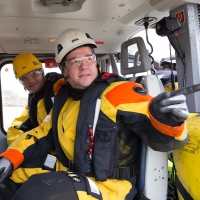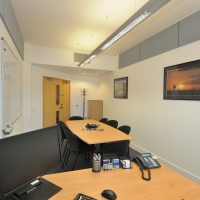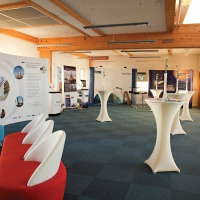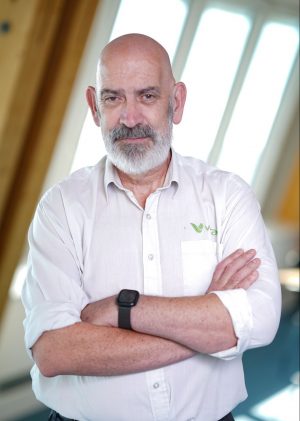Tidal Transit, a supplier of purpose-design crew transfer vessels for the offshore wind industry, has begun the design and engineering phase of a project to deliver what the company claims to be the world’s first retrofit electric crew transfer vessel (E-CTV).
Over the next 15 months, the UK-based company will retrofit a diesel-powered Mercurio 20-metre vessel, Ginny Louise, with over 2 MWh of battery capacity, electric motors, and propulsion pods.
The finished product, e-Ginny, will not only be 100 per cent zero emissions in operation but also boast increased maneuverability while being near-silent for passengers and passers-by, Tidal Transit said.
Upon completion, the E-CTV will begin service on a UK offshore wind farm for a period of three years.
As existing shoreside charging capabilities are severely limited, the project will expand vessel charging infrastructure by installing both an onshore charging station from Artemis Technologies and an offshore wind turbine based-charger from MJR Power & Automation to allow for direct E-CTV charging on location, “greatly increasing the time and range that electric vessels can stay in operation without returning to port,” according to the company.
The e-Ginny project is being carried out in partnership with Goodchild Marine Services, Artemis Technologies, and MJR Power & Automation while key equipment suppliers also include Volvo Penta, Danfoss, and the battery system from Corvus Energy.
The project is supported with GBP 6.3 million (about EUR 7.3 million) funding from the Zero Emissions Vessel and Infrastructure (ZEVI) competition, as part of Innovate UK and the Department of Transport’s strategic plan to develop, deploy, and operate clean maritime solutions.
Sourced by: offshoreWIND.biz













